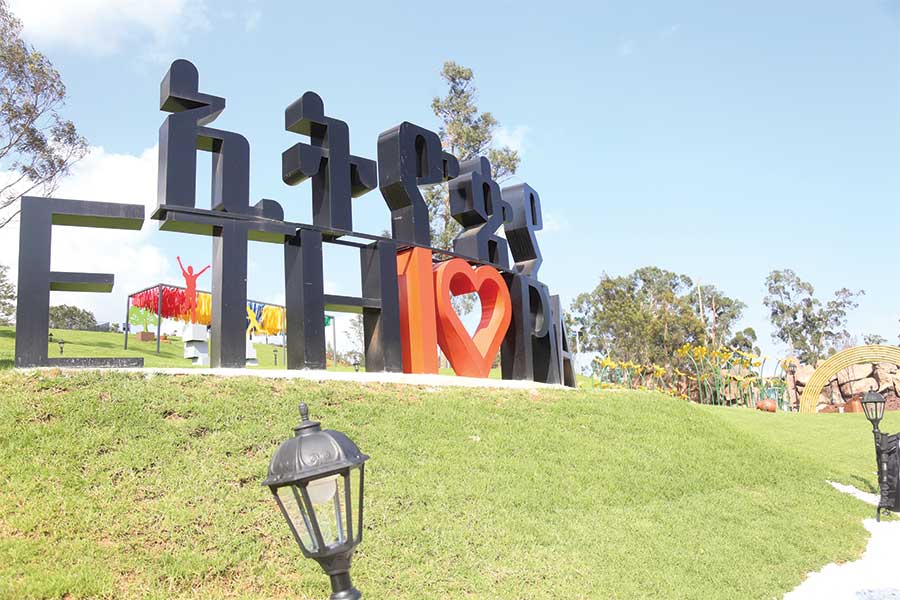
Radar | Oct 27,2024
Oct 9 , 2021
By BAMLAK FIKADU ( FORTUNE STAFF WRITER
)
A donkey slaughterhouse has resumed operations in Assela town, in the Arsi Zone of the Oromia Regional State, after seven years delay due to public outroar.
Rhong Chang, a China-based company, has opened the abattoir with an investment of over 60 million Br, in 2014. It can slaughter 300 donkeys a day, hiring 200 people. The company had exported 80,000 dollars worth of meat to markets in East Asia last month.
The development comes five years after the pioneer slaughterhouse for donkeys, Shandong Dong, was closed by authorities following public affront for the business perceived as offensive to societal values and norms. Rhong Chang commenced operations following consultations with religious and community leaders in the area as well as security and Assela Town Administration officials, according to Kassim Ibrahim, head of Hilala Kebele in Assela.
"The company has been given a permit to start operations after observing changes in the attitude of residents in the area," Kassim told Fortune.
As part of the deal, the company cannot source donkeys within a 100Km radius of where the abattoir is located.
"We won't compromise if there are issues with the health safety of residents," said Kassim.
The abattoir processes aged and male donkeys, paying over 2,000 Br per head. It has slaughtered nearly 6,000 donkeys since it kicked off operations five months ago, but the meat was not exported until last month due to a shortage of refrigerated containers. However, the Meat & Dairy Industry Development Institute facilitated containers for the first shipment of 101tn of donkey meat last month.
Rhong Chang has not yet commenced the export of hides to China, where they are used to make a traditional medicine known as elijao. It is believed to be a remedy for everything from ageing to miscarriage and has seen a price upsurge in Chinese markets over the last decade. A kilogramme of the gelatinous substance can go for as much as 900 dollars.
The controversial concept of abattoirs processing donkeys first set foot in 2012, after Shandong Dong obtained a license from the Ethiopian Investment Commission to establish a slaughterhouse in Bishoftu. Five years later, the company began operations and exported 200,000 dollars worth of donkey meat and hides before the Bishoftu City Administration shut it down. No other abattoir has been allowed to open but this encouraged the illicit cross-border donkey trade to Kenya.
There are three abattoirs processing donkey meat and skins in Kenya, exporting to East Asia. A live donkey can sell for 165 dollars.
"Thousands of donkeys can pass through the Moyale border on market days," says a person knowledgeable of the matter.
Some even come from as far as Addis Abeba, 774Km away from Moyale.
Out of a global population of 44 million, around 1.8 million donkeys are slaughtered every year to produce elijao, according to a report published in 2017 by the Donkey Sanctuary, a UK-based non-profit organisation working to protect and maintain the socio-economic value of donkeys across continents.
"It's a lucrative business," says Bojia Endebu (PhD), country manager of the Donkey Sanctuary in Ethiopia.
Ethiopia has an estimated donkey population of eight million, one of the highest in the world. Bojia warns that unless the issue receives the attention it deserves, donkey populations in the country could come under serious threat.
"We might not see donkeys in the near future," he said.
The management of Rong Chang company declined to comment on this story despite several attempts.
PUBLISHED ON
Oct 09,2021 [ VOL
22 , NO
1119]

Radar | Oct 27,2024

Radar | Oct 30,2021

Fortune News | Oct 12,2019

Radar | May 08,2021

Radar | Jan 18,2020

My Opinion | Aug 09,2025

Fortune News | Sep 21,2019

Radar | Aug 20,2022

Radar | Aug 08,2020

Radar | Nov 09,2024

Dec 22 , 2024 . By TIZITA SHEWAFERAW
Charged with transforming colossal state-owned enterprises into modern and competitiv...

Aug 18 , 2024 . By AKSAH ITALO
Although predictable Yonas Zerihun's job in the ride-hailing service is not immune to...

Jul 28 , 2024 . By TIZITA SHEWAFERAW
Unhabitual, perhaps too many, Samuel Gebreyohannes, 38, used to occasionally enjoy a couple of beers at breakfast. However, he recently swit...

Jul 13 , 2024 . By AKSAH ITALO
Investors who rely on tractors, trucks, and field vehicles for commuting, transporting commodities, and f...

Oct 18 , 2025
The political establishment, notably the ruling party and its top brass, has become p...

Oct 11 , 2025
Ladislas Farago, a roving Associated Press (AP) correspondent, arrived in Ethiopia in...

Oct 4 , 2025
Eyob Tekalegn (PhD) had been in the Governor's chair for only weeks when, on Septembe...

Sep 27 , 2025
Four years into an experiment with “shock therapy” in education, the national moo...